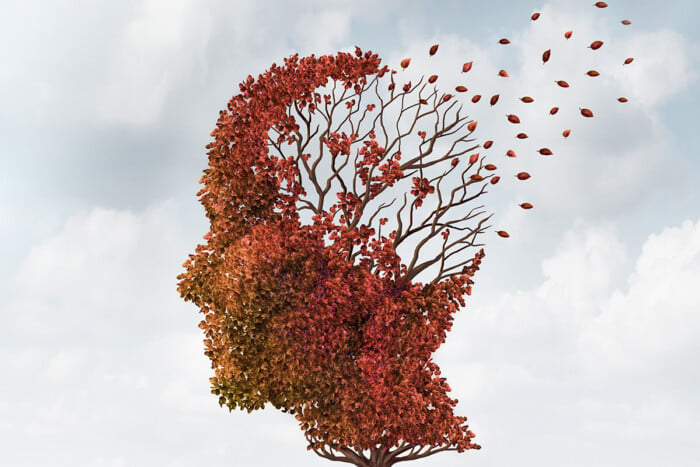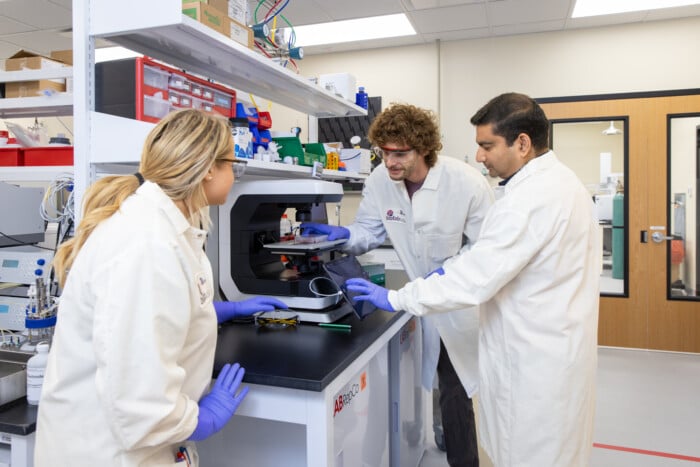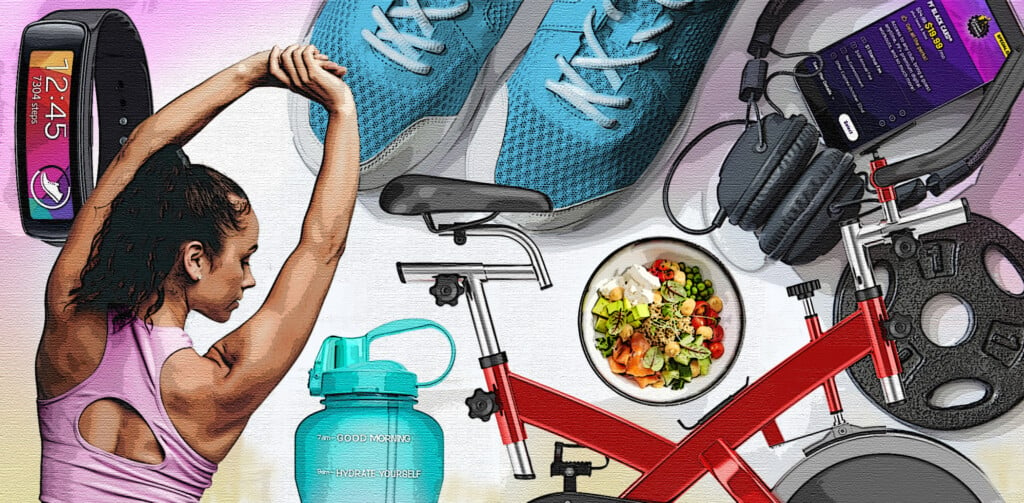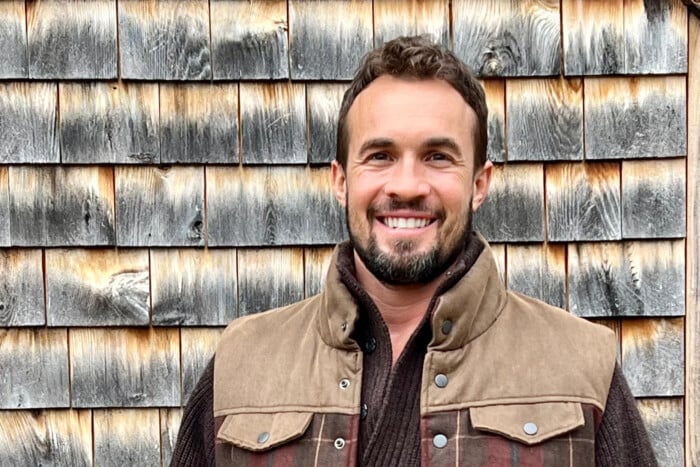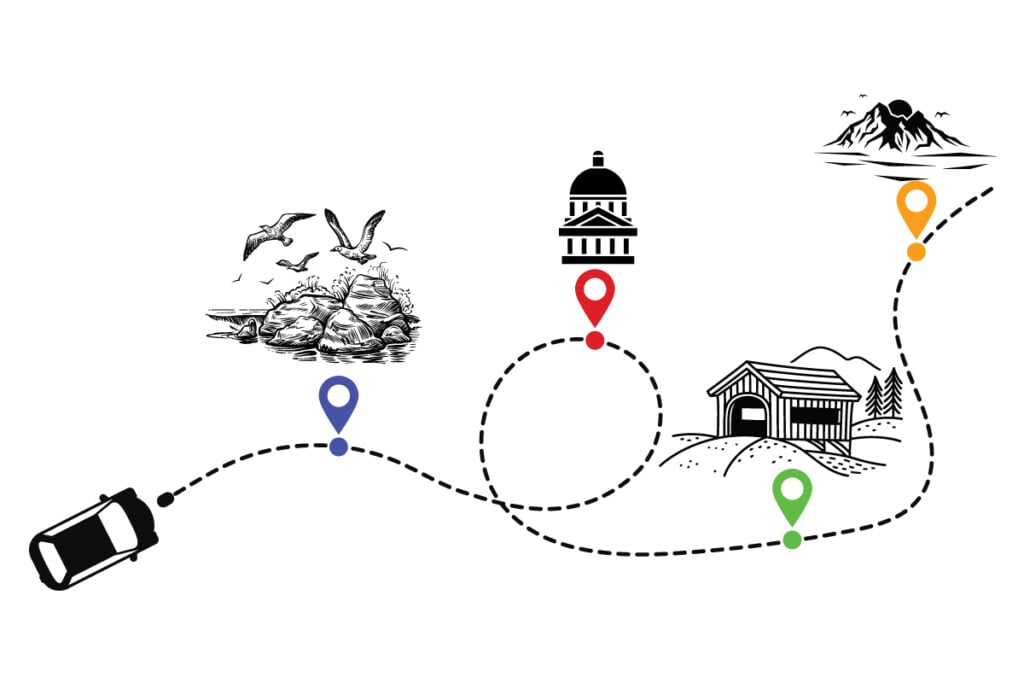How to Cope with an Identity Crisis
What to do when life changes and you’re not ready

Illustration by Gloria Diianni
Life events such as having a baby, sending a child off to college or experiencing a global pandemic can throw a person for a loop, leaving one to look in the mirror and wonder “Who am I? What do I do now?”
We all are resistant to change,” says Peter Naitove, Psy.D., Ed.M., a NH certified school psychologist. Change that challenges our identity can be particularly difficult to accept.
Much of our sense of identity centers around what we feel is special about ourselves. “I think this is what we feel our individual gifts are — our talents, our interests, our passions, the ways that we stand out as unique. I think it’s especially about what brings us joy” as well as sadness and grief in our lives, says Carl G. Hindy, Ph.D., a retired clinical psychologist who now works exclusively with couples in a “retirement practice” in Exeter. “It’s so important that we all feel special in some way, so we’re not just a widget, just like everyone else. … That sense of our identity drives so much in our lives.”
Hindy points to his own life as an example. “I’ve spent my life working as a psychologist, and now I’m recently retired,” he says. “While I planned to do a little psychology practice [in retirement], COVID has prevented that, and I’m sort of struggling over that.”
Our sense of identity develops in various stages starting in early childhood, Naitove says. It’s shaped by the environment we grow up in, trauma and loss, our ethnicity, cultural background, and more. “It’s an incredible process,” he says. “There’s so much overlap with all these different aspects of our life. It’s very complex.”
As we progress through life, our identity continues to evolve. “There are shifts in one’s life,” Naitove says, “whether it’s natural shifts because of aging and growing, or they’re imposed on you through trauma or COVID” or other unexpected situations.
The upheaval that has been inescapable for everyone this year has led many to reflect on their identity, or to mourn the loss of some aspect of their identity. Newly unemployed individuals who previously considered themselves successful, for example, might feel that they now lack a valued dimension of their identity. This is where self-image, resiliency and adaptation are crucial characteristics, Naitove says. “We need to be careful in how we identify ourselves, and the language is important because if I say ‘I’m a very capable businessperson and if this doesn’t work out I can find something else,’ that’s different from thinking ‘This is all I can do and I can’t do it anymore.’”
Unfortunately, the social isolation that is prevalent in modern times — even prior to COVID-19 — can leave our sense of identity on shaky ground. Years ago, Hindy says, “we lived in cohesive neighborhoods with family on the block and we went to the same churches and social club at night, and had all these overlapping roles with the other people we were close to. Now that has all fractured. …There isn’t a whole ‘who am I’ reinforcement that there used to be.”
When change challenges or threatens your identity, reflect on your special talents, interests and passions, says Hindy, and ask “What brings me the most joy in my life? What do I really enjoy, and how can I steer toward those things?” To help maintain the emotional engagement he relished for 37 years as a therapist, in retirement Hindy has scheduled walking-and-talking times with friends. He also volunteers “in a way that relates to my particular identity. Like at the food pantry here in town, we can all stack the cans and fill the bags, but I’m trying to be the person that stands out in the street … and talks with the people waiting in line for food about what they’re going through, and how they’re dealing with COVID and whatever in their life. I’m trying to find ways to recreate some of the things that bring me a sense of meaning and purpose. It’s joy, meaning, purpose, engagement. I think those are the key words.”
Tips for coping with an identity crisis
Both of the experts we spoke with about identity say that it’s important to remember, particularly during times of potential identity crisis such as job loss or a newly emptied nest, that we have many roles — and to beware social media, which can feed insecurities or perceived inadequacies as we compare ourselves to others.
“We each have multiple roles,” says Carl G. Hindy, Ph.D., a retired clinical psychologist who now has a limited practice in Exeter. One person might be a mother, daughter, sister, veterinarian and more, for example. “View yourself as the aggregate of all those roles,” Hindy says, “and see the value in that whole identity,” rather than breaking it up into little pieces. “Identity is the sum, or more than the sum of our parts.”
Also, believe in your ability to handle change, suggests Peter Naitove, Psy.D., Ed.M., a NH certified school psychologist. When you find yourself mourning the loss of some aspect of your identity, whether it’s your job, your youth or something else, “you have to adapt and say, ‘That’s not all I am,’” Naitove says. “Start to realize ‘I’m not one thing.’”
And as always, if you are struggling on your own, seek professional help.
